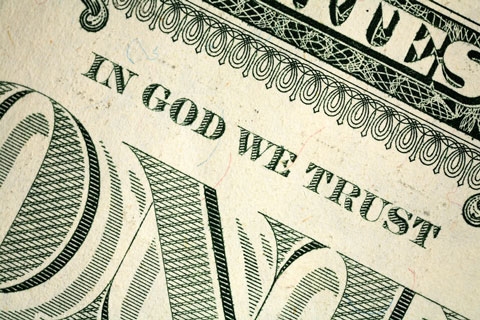Benel D. Lagua l June 13, 2024 l Manila Bulletin

There is an interesting book review at The Economist which covered “The Divine Economy” by Paul Seabright. In this column, let us summarize how religion has become a subject for economic analysis. This writer will however cap this review with personal reflections on the relevance of economics in understanding our faith.
“Religions lend themselves to economic analysis nicely. They offer a product (such as salvation), have a network of providers (priests, imams, and so on) and benefit from good distribution networks. It is not just trade that travels on trade routes: ideas, diseases and religions do.” Roman roads allowed Christianity to spread across Europe with a rapidity never seen before.
Academics have been studying the economics of extremism and obtaining a place in the afterlife. Economists describe the Reformation period as “the moment when a monopoly provider (the Catholic Church) was broken up, leading to an increase in consumer choice (Protestantism) and the price of
services declining (indulgences were out). A great variety of suppliers started to offer road maps to heaven.”
Professor Seabright explains that the two most popular religious “brands” (Christianity and Islam) replaced smaller local religions. These brands have honed the international distribution of their products. They have the resources to compete for customers in ways that smaller, less well-financed “local gods” cannot.
As The Economist writes, Seabright’s idea “that religions are platforms” is at times more confusing than clarifying. Nonetheless while such perspective is leading to a West that may be less Christian, the rest of the world is not. Between 1900 and 2020, the proportion of Africans who are Christians rose from under 9% to almost half; the proportion who are Muslims rose from around a third to over 40%. Even in secular countries, faith remains powerful.
In sum, despite the attempts to objectify and scrutinize religion, the notion that “God is dead”, a quote from Friedrich Nietzsche in 1882, is misplaced and wrong. This author’s personal experience visiting the Church of the Holy Sepulchre (site of crucifixion and burial) in the Holy Land prior to the Israel- Hamas war demonstrates the presence of conflicting pathways. Various Christian groups, including the Greek, Roman, Armenian, and Coptic churches, control parts of the church. Also, the two greatest religions of the world, Christianity and Islam, trace their common origin to the God of Abraham. And there lies the irony of the geo-political conflict of the Middle East.
We leave that topic for a different column but segue into how economics and finance should be valuable in managing our daily existence. Believers should find solace in that the Bible itself is a source of lessons in finance. The science of economics after all is about the allocation of our scarce resources, and money is one such important resource.
Some people misquote the Bible when they claim, “money is the root of all evil”. That is fake news. But it does say this: “For the love of money is the root of all kinds of evil. And some people, craving money, have wandered from the true faith and pierced themselves with many sorrows.”
Money is neutral. And the reality is God can bless us financially. Principles of economics can be used and can be compatible with faith. The path to salvation requires working hard at whatever you do, investing wisely and being faithful to our God. It means loving people and using our blessings (e.g. money) wisely and keeping priorities right by developing a good moral compass. It ultimately means valuing earthly wealth to achieve true riches in the divine world.
Whenever I teach about the concept of time value of money in finance, I enjoin my students to reflect upon the parable of the talents and how the return of same number of talents by one servant who merely hid what was assigned to him totally displeased his master. Talent was a unit of currency in those times.
While the parable can be interpreted in many ways, at its core the master expected that the money should have been deposited at the least with banks and earn some interest. Inflation, opportunity cost and uncertainty are the rationale for money’s time value and this parable underscores this concept.
In the book, “Your Money Matters” written by Gary Inrig, he cited parables Jesus shared in his ministry on earth which involved financial examples and how we should view money and wealth. One of those is the parable of the shrewd manager or the dishonest steward. Some of the gems from that parable are as follows: we must recognize the limits of wealth because at the end of the day, when we die, we cannot bring anything from this world. Money is powerful but limited, temporary and temporal and we are here as mere stewards.
Economics is a useful model to understand the evolution of religions. But ultimately, we may want to look at economics as a discipline for understanding and deepening our faith. The study and practice of economic methodology can find fusion with our faith.
*** (Benel Dela Paz Lagua was previously EVP and Chief Development Officer at the Development Bank of the Philippines. He is an active FINEX member and an advocate of risk-based lending for SMEs. Today, he is independent director in progressive banks and in some NGOs. The views expressed herein are his own and does not necessarily reflect the opinion of his office as well as FINEX.) Photo from google.com

